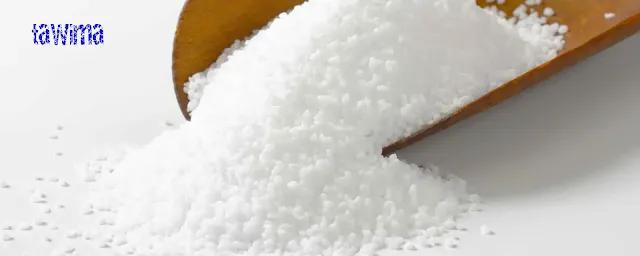Iodized salt has been around for over a hundred years, and it is one of the most important things to have in your kitchen. It is important because it contains iodine, which can help prevent goitres in children and thyroid problems in adults. Iodized salt also contains sodium and potassium as well as chlorine. With so many benefits, it’s no wonder that iodized salt is considered a standard staple in many households. In this blog post, we will be discussing how iodized salt has contributed to our current lifestyle.
Introduction
Iodized salt is a common staple in many households. People need to know about it because it contains iodine, which can provide relief from goitres and thyroid problems.
Iodized salt has played a key role in our current lifestyle. It has helped to improve the quality of life for many people in different ways. Iodized salt reduces the risk of goitres and other thyroid problems by providing iodine to the body. Additionally, iodized salt helps to regulate water balance in the body. We need a certain amount of sodium and potassium in our bodies to maintain proper fluid balance. Some of the reasons that we eat iodized salt include taste, convenience, and nutritional benefits.
What is Iodized Salt?
Iodized salt, also known as potassium iodide, is an important mineral that helps prevent goitres in children and thyroid problems in adults. It also contains sodium and potassium as well as chlorine. In 1914, the Russian chemist I.C. Yagel discovered the iodine-iodide reaction and began to produce it commercially for use in military defence. Today, iodine is used in medical treatment for patients with thyroid problems such as hypothyroidism.
Iodized salt is one of the most important assets to have in your kitchen because it provides a healthy dose of iodine, which can help prevent health problems related to the thyroid gland.
The benefits of iodized salt are so many that it’s no wonder that this staple is considered a standard staple in many households.
Benefits of Iodized Salt
One of the most important benefits of iodized salt is its ability to prevent goitres in children. If a child’s thyroid is functioning properly, they will have normal growth and development. But if the child’s thyroid isn't functioning properly, it can lead to the symptoms that happen with a goitre. Goitres are swollen neck glands on the front of the neck and they cause weight loss, fatigue, and other symptoms. This is why it is so important to ensure that your child's thyroid is functioning properly.
Another benefit of iodized salt is its ability to prevent thyroid problems in adults. It prevents these problems by regulating your iodine levels so you maintain optimal health and avoid going hypothyroid or hyperthyroid. Thyroid problems aren't common but they can happen over time if you expose yourself to too much radiation from electronics like cell phones or radiation treatments for cancer patients. The radiation treatment for cancer patients will lead to low iodine levels and this leads to health issues like anaemia, infertility, constipation, depression, muscle weakness, and forgetfulness. If you're not careful about your intake of iodine as well as other nutrients, you could be at risk for developing one of these health issues listed above.
Iodized salt also contains sodium and potassium which are essential nutrients that we need every day to function optimally as humans. Sodium helps with fluid retention while potassium helps regulate heart rate and blood pressure which help reduce heart attack risks
How Does Iodized Salt Work?
Iodized salt works by helping your body to keep the right amount of iodine in your bloodstream. Iodine is essential for thyroid function, and when you're deficient in iodine, your thyroid won't work well. If you're pregnant or breastfeeding, you need more iodine than a person who isn't.
Iodine is also important for preventing goitres in children and thyroid problems in adults. When children aren’t exposed to enough iodine, they can grow goitres because their bodies aren’t absorbing enough iodine from their diet. For adults, goitres can happen if your body doesn't have enough iodine because of low thyroid function or not enough exposure to sunlight.
Iodized salt also has sodium and potassium as well as chlorine--all three provide an array of health benefits that are important for people all over the world!
Controversial History of Iodized Salt
Iodized salt has a controversial history. It was first used as a public health measure in the early 1900s and was widely accepted in countries like the United States, Canada, and Australia. Around this time, there was a movement to make iodine mandatory for children living in those countries. In 1917, the U.S. Food and Drug Act required that all iodized salt be labelled as such on packaging. This is important because it helped reduce goitres and thyroid problems in children by giving them a source of iodine regularly so they could benefit from its health benefits throughout their lives.
However, because of advancements in food processing during World War II, many companies found it easier to add iodine to their products than it was to label them correctly as iodized salt. One of these companies was Morton Salt Company which made salt-based crayons and pastes which were used by soldiers fighting overseas during WW II. The company became one of the largest producers of iodine additives, making more than 30 million pounds per year by 1950. Finally, after many years of following this trend and developing iodine-based compounds for industrial use, iodization became the standard practice once again – but not until 1963 when Congress passed legislation requiring all packaged foods sold in the United States to contain at least 2% iodized salt or 4% potassium iodide (KI).


Comments
Post a Comment